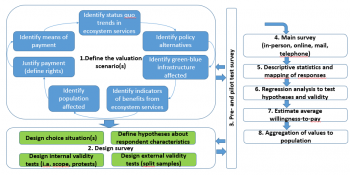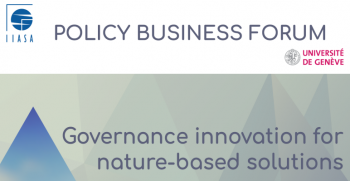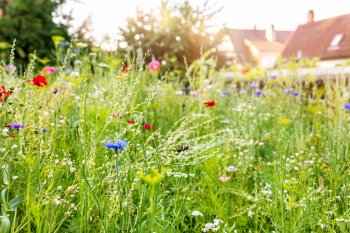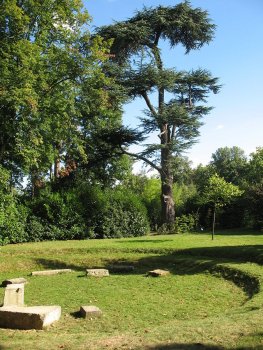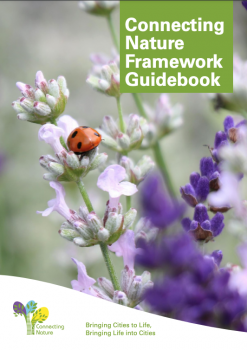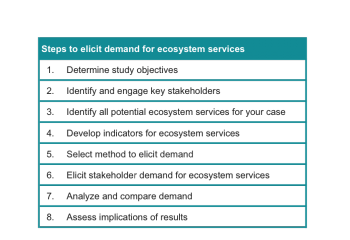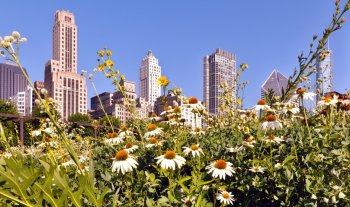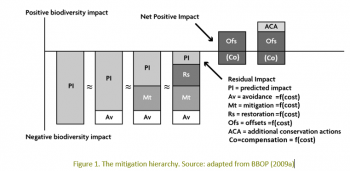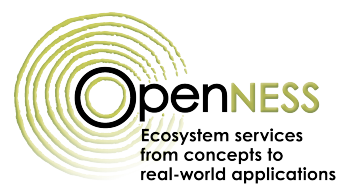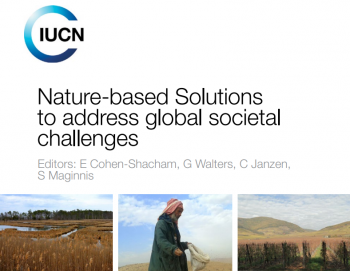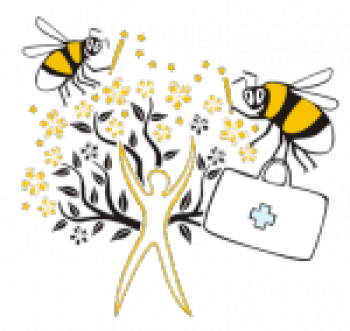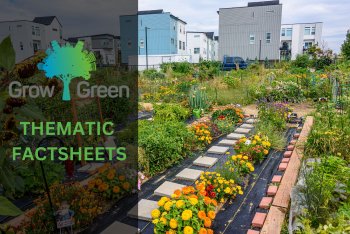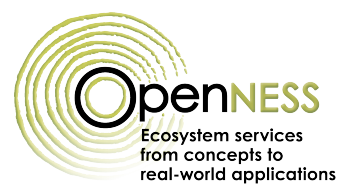Climate Action through Regeneration: Unlocking the Power of Communities and Nature through Tourism
This white paper, “Climate Action through Regeneration: Unlocking the Power of Communities and Nature through Tourism” surveyed 30 tourism operators globally using the IUCN NbS Global Standard to assess how NbS are enabling destinations to take proactive climate action. The paper outlines 5
Urban resilience and sustainability - URBES Factsheet #5
This factsheet explains the importance of understanding the relationship between people and nature in urban planning and decision making in order to achieve urban resilience and sustainability.
- Video
PHUSICOS: Living Lab en Erill la Vall (Catalunya, España)
Do you know about the problem that the population of Erill la Vall in Catalonia faces? Are you interested in knowing more? Here you will be able to view explanations from PHUSICOS project experts and images about this erosive problem and the nature-based solutions designed to respond to it. The
Method Factsheet - Stated Preference Valuation Methods
Stated preference valuation is family of techniques which use individual respondents' statements about their preferences to estimate change in utility associated with a proposed increase in quality or quantity of an ecosystem service or bundle of services. Respondents are presented with one or
Governance innovation for nature-based solutions - PBF Workshop Summary 24 March 2020
The Policy Business Forum (PBF) consists of Nature-based Solutions (NbS) experts and knowledgeable stakeholders at the international, European, and national scale. The main aim of the PBF is to explore innovative ways to strengthen the science-policy-business nexus in order to exploit opportunities
Demonstrating the impact of innovative nature-based solutions
This Infographic shows the environmental, social and economic impact of innovative nature-based solutions in Connecting Nature cities Genk, Glasgow, and Poznań.
The environmental health citizen interview tool: towards an inclusive qualitative environmental wellbeing approach in support of planetary health
Nature-based Solutions (NbS) are vital for addressing climate change and biodiversity loss, yet their benefits are often unequally distributed. This study introduces the Environmental Health Citizen Interview Tool, aiming to inclusively capture diverse perspectives on environmental wellbeing using
Connecting Nature Framework
Connecting Nature has developed an introductory guidebook to the overall Connecting Nature Framework and a series on each of the individual elements to assist you develop your nature-based solution.
Study Design and Synthesis Protocol: The blueprint protocol
Welcome to the Blueprint protocol for ecosystem services studies. The aims of the protocol are twofold: - to act as a thinking tool, at the onset of projects, to help researchers design their studies - to synthesise complex research projects into a common framework. Hence, it is more than a
Eliciting Demand for Ecosystem Services: Results and User Guidance from the OPERAs Demand Synthesis Working Group
Based on experience in seven of the OPERAs Exemplar case studies, we summarize what the research team has learned about working with stakeholders to elicit demand for ecosystem services and put forth an eight-step framework for doing so. Each step of the framework includes examples from the OPERAs
Taking Action for Urban Nature - Effective Governance Solutions
The research presented suggests that different opportunities should be explored to connect top-down policies that promote nature-based solutions for biodiversity, climate and environmental goals and bottom-up initiatives that stress their value in providing green space, well-being and economic
City for Biodiversity: The Roles of Nature-Based Solutions in European Cities
Local and subnational governments are increasingly being recognised for their critical roles in the implementation of the post-2020 Global Biodiversity Framework. To develop an understanding of how cities are (and can be) working with nature for protecting and reinforcing biodiversity, the
Hedonic property pricing
Mitigation cost-based valuation methods are a group of valuation methods that use the cost of actual measures to maintain ecosystem service provision as a proxy for the value of avoiding, mitigating or restoring the loss of services ecosystems provide.
Method Factsheet - Revised Universal Soil Loss Equation (RULSE)
The Revised Universal Soil Loss Equation (RUSLE) is an empirical erosion model recognised as a standard method to calculate the average risk of erosion on arable land. It developed from the Universal Soil Loss Equation (USLE) developed in the US Department of Agriculture and has other similar
Nature-based Solutions to address global societal challenges
This report has been prepared as part of an effort by IUCN to define its position on Nature-based Solutions (NbS) and plan for future work to advance this concept and support effective implementation of NbS to enhance ecosystem services provision and address societal challenges. The report proposes
Mapping and assessment of ecosystem services in Natura 2000 sites of the Niraj - Tarnava Mica region
The goal of the project is to assess and map the most important ecosystem services of the area based on the perception, valuation and utilization of the services by the local residents.
- Dataset
- Document
- Software
GreenSpaceHack
Emerging evidence suggests that greenspace, whether used for recreation or physical activity (i.e. ‘green exercise’), can improve mental health and wellbeing. Indeed, individuals who use greenspaces or engage in green exercise have less mental distress, less anxiety and depression and healthier
Urban Heat Atlas
Methodology for detailed urban heating demands and related energy consumption.
GrowGreen Thematic Factsheets
The GrowGreen Partners made a collaborative effort for creating a list of factsheets, in order to summarise the results of the various projects. The factsheets are organised by thematic area, that are biodiversity, economic impacts, heat stress, social benefits, water runoff, and water quality.
OpenNESS Glossary
This glossary was developed to provide some working definitions of terms related to ecosystem services and natural capital and their applications so that they could be 'tested' in the context of OpenNESS. The aim of OpenNESS is to operationalize the concepts of Ecosystem Services (ES) and
- ‹ previous
- 10 of 48
- next ›



